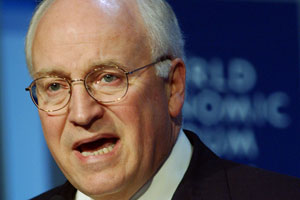I just got off the phone with Columbia Law School professor Michael Ratner, who is also the President of the Center for Constitutional Rights, a human rights nonprofit. Ratner read our story this morning about Philip Zelikow’s allegations that Dick Cheney’s office may have “collected and destroyed” an anti-torture memo Zelikow wrote in 2005. Any such coverup could present a significant problem for the defense in any potential torture trial targeting Bush administration officials, Ratner says:
If this memo’s out there, an important part of it goes towards mens rea, which is a guilty mind. A lot of the question here is did they know [torture] was wrong, did they know it was criminal. If they suppressed opposite opinions, that’s some indication that they had guilty minds. If there were memos that were intentionally suppressed, it would be one of the elements that go towards a conviction.
Ratner says that if Zelikow’s anti-torture memo was suppressed, it probably wasn’t just because Bush White House bureaucrats wanted to ignore opinions they disagreed with:
I think they wanted a clean slate so they could later say that our legal conclusions were reasonable and they were made in good faith. [A coverup] undercuts that… It undercuts the lawyers’ defense that this was in good faith and objectively reasonable and it also puts out there that there’s an alternative view of the legality of [torture].
It remains unclear what actually happened. Ratner says the smart legal move would probably have been to ignore Zelikow’s memo rather than trying and failing to suppress it, Ratner says: “The suppression of it stings more because it indicates that they didn’t want to know.”
More on this as it develops.










